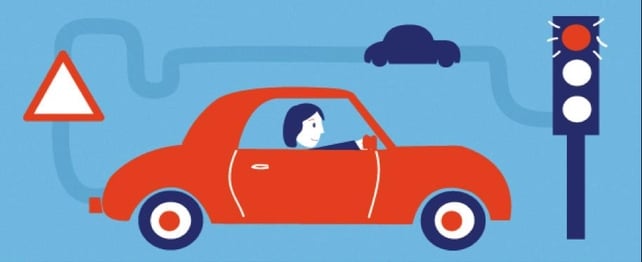Is your motor insurance up for renewal? You may be able to make savings by changing your level of cover or by looking for quotes from other insurance providers. The Competition and Consumer Protection Commission (CCPC) has a number of tips to help you make savings:

1. Get a number of quotes – from insurance companies or a broker either online or over the phone. Then see if your existing insurer will match a cheaper quote or give you a better quote to keep your business. Quotes are usually only valid for a certain amount of time so find out how long you have and then make a decision. Always get the quote you have been offered in writing, rather than verbally. To keep track of quotes use the motor insurance shopping around checklist on the CCPC’s consumer website, www.consumerhelp.ie.
2. Know what can have an impact on your premium – there are a number of factors that can impact the amount you pay such as being over-insured or underinsured, or the type of car you drive. For instance, if you overestimate the value of your car, the insurance will cost you more. If you have a fire or theft claim, the insurance company will only pay what they consider to be the market value of the car, no matter what you have insured it for. Don't under insure either, because it will be difficult to replace your car if you need to. Also, choose your car wisely, the more expensive your car and the bigger its engine, the more you are likely to pay. You may also have to pay more if your car is imported or if there are more theft claims on your model of car. Check with your insurer before you buy a car, so you can estimate insurance costs.
3. Know what type and level of cover you need – depending on your circumstances and on the age and value of your car, you need to consider what insurance suits you best. Going for the cheapest level of cover is not always the best option. When comparing policies check to see what benefits are included in the policy and what is excluded.
4. Find out what excess applies to the policy - the excess is the first part of any insurance claim that you have to pay yourself and is usually a fixed sum. For instance, if the excess on your policy is €300 and you make a claim for €1,300, you will have to pay the first €300 of the claim. Most policies offer flexibility in terms of the excess you pay. You can usually lower your premium by agreeing to a higher excess, and vice versa; if you opt for a lower excess you can expect your premium to be higher.
5. Ask about any costs for paying your premium in installments– find out how much exactly you will pay if you choose this option. You will usually be charged for this facility, however by law, you must be told what your monthly installment will be. This will vary between different providers.
6. Complete your form accurately- insurance providers look at many factors when deciding on the cost of your policy, including your job. The job categories used can be broad and you may fit into a number of different ones. For instance, if you work in publishing as a writer and put your occupation as journalist you're likely to pay more than you would if you put down editor, copywriter or even reporter. However, be honest about your job, for example don’t say you’re a teacher if you’re really a salesperson who is constantly on the road.
7. Downsize your car – if you are changing your car for one with a smaller engine be sure to let your insurance provider know as this may help lower your premium.
8. Consider switching - you can switch your motor insurance at any time during your policy but make sure you give notice in writing to your current provider. Some providers may charge a penalty fee for cancelling during the policy. So, if you are thinking about switching check with your current insurer first to see if you need to pay a penalty. If a penalty fee will be charged, work out whether you should switch now, or wait until your policy comes up for renewal. By law, your existing provider must notify you that your policy is up for renewal 15 working days before your renewal date. For information on what you need to do to switch insurance provider visit the CCPC’s consumer website, www.consumerhelp.ie.
Fergal O’Leary is Director of Communications and Market Insights at the Competition and  Consumer Protection Commission (CCPC). The CCPC is responsible for enforcing competition and consumer protection laws across the economy. To help consumers make informed decisions it also gives independent, unbiased information about consumer rights and personal finance products and service through its consumer helpline 1890 432 432 and consumer website www.consumerhelp.ie
Consumer Protection Commission (CCPC). The CCPC is responsible for enforcing competition and consumer protection laws across the economy. To help consumers make informed decisions it also gives independent, unbiased information about consumer rights and personal finance products and service through its consumer helpline 1890 432 432 and consumer website www.consumerhelp.ie


